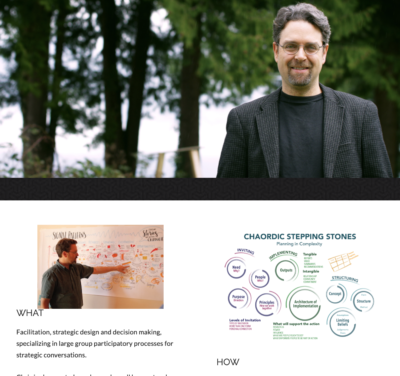
[Also available on Human to Human, The Podcast, 6 minutes]
I have learned over the years that one of the key aspects of psychological maturity is the ability to hold as valid, opposing thoughts, or simultaneous but different truths, at the same time. Let’s over simplify what plays out in millions of moments every day.
Imagine a partially sunny / cloudy day.
“It’s sunny today,” says one person.
“No it’s not. It’s cloudy today,” a second person responds.
Now, yes, there is some technical measuring that can happen here. There appears to be more blue sky than cloud. Therefore, it is sunny. OK. This simplicity relies on data to establish a “right” answer.
I would suggest we live in a culture
that so favors data and the convenience of certainty
over nuanced context and subjectivity
and the discipline required in complexity,
be it in the emotional, and / or in intellectual.
A little less oversimplified.
Maybe, just maybe, the partially sunny / cloudy day is sunny because person one lives in a climate that very seldom sees cloud-free days. Person two comes from a climate that has 330 days of sunshine, most frequently cloud-free, and thus claims cloudy.
Is it worth arguing about? I suppose if that is what you like. Is there an answer? No, never definitively if you welcome context and complexity of inner worlds. And it’s just an oversimplified weather report.
Psychological maturity implies
an ability to be aware that nuanced context
dethrones the convenience of certainty.
I would suggest that most of us, individually and collectively,
need to grow ability and practice to evolve ourselves into more of that kind of maturity.
Yup, that’s a big narrative. Yup, that is some of the work of our times that I’m rather oriented toward. Inner has everything to do with outer. I like that stuff. Because I’m working it quite a bit in me.
So, about the words that come out of our mouths, as it pertains to psychological maturity. Late last night I picked up my daughter and son-in-law from the airport and their late night flight, just after midnight. The airport is 45 a minute drive. Though I was excited to see them, and thus more awake, I’m an early-to-bed person. When possible, I prefer to be in bed by 9:30 and awake between 5:00 and 5:30. To keep myself awake, I flipped on the TV and watched some of a late night talk show. Stephen Colbert was interviewing Keanu Reeves. I caught the tail end of the interview. Reeves was dressed in the character he plays in a movie that I think is soon to be released — it’s the John Wick series. Colbert asks him, “What happens when people die?” It’s loaded with myriad of responses. I love the words out of Reeves’ mouth that bridge the river of responses. Reeves says, “People who love that person miss them.” That response was unexpected. It wasn’t offered comedically. I would suggest that was a very matured orientation, knowing that you could choose a hundred other things that would just trigger the unmatured. I’d call that genius.
Here’s another example, because I’m still late-nighting, well past my preferred bed time. I watched a clip on my ESPN app with Golden State Warriors basketball player, Steph Curry. A reporter had asked, “What do you think about Drake on the sidelines?” The other team in the NBA finals that start this week is the Toronto Raptors. The artist and musician Drake is from Canada. Apparently he has attended previous playoff games, is courtside, and is both cheering and taunting. Now the question is again loaded for many triggery responses. “He shouldn’t do that.” “They need to get security on him.” That’s probably what the reporter thought that Curry would say. Curry, like Reeves, was genius. “He’s having a lot of fun. You can’t hate on someone for having some fun.”
It’s just a basketball game, with a comment from a star player. It’s just a movie, with a comment from a star actor. And who knows — maybe those people are heavily coached on what to say and these two are smart enough to follow that coaching. I love seeing the simple in the profound. The responses pointed to a nuanced choice of words out of our mouths that might just come from a more matured space.
Made me smile.
Felt like a sunny and cloudy day, which I like.


